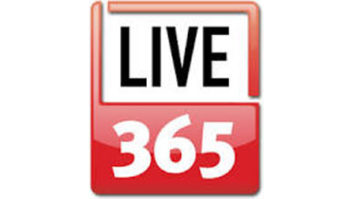
How has Gordon Smith’s familiarity with the turbulent Capitol Hill waters changed NAB strategy? With the former U.S. senator navigating its boat, its sailing course sure is different these days. Just consider performance rights.
It was fascinating listening to questions asked by members during this week’s NAB webcast about the issue, and the responses shed some light on the job Smith and his team have been doing out of the public’s eye.
As we’ve reported, talks with musicFirst had progressed to a point where NAB felt it would be remiss if it didn’t present options to members. Although NAB is now talking about a royalty, something it had resisted, the association thinks it is winning the overall fight. Why? Because it has fought off more onerous payment terms from labels; because the current talking points would result in a reduction in streaming royalties, which would be set by law and harder to change; and because the unpredictable Copyright Royalty Board would be out of the business of setting radio’s streaming royalties.
But then, an NAB member asked, why did the association ask stations to air all those anti-Performance Rights Act spots?
NAB Joint Board Chair Steve Newberry said NAB President/CEO Gordon Smith had removed the trade organization from “a very difficult position a year ago,” without mentioning former leader David Rehr’s famous “slit my throat” reference on this issue.
Smith said it was clear when he joined the trade group that, given the support PRA had from committees and congressional leadership, “NAB was in a dangerous position” if that bill passed as is. Congress is going after other industries, like the auto and financial industries, he said without getting specific — presumably he means more oversight — and he said the current leadership is “determined to move a bill” on performance royalty.
“My job,” he continued, “is to make sure no part of this bill moves at Christmas Eve in a lame-duck” session.
While Smith believes NAB could still prevail, and that a new Congress in 2011 is apt to produce gridlock leading up to the presidential election, political reality is that nothing is certain. He characterized NAB’s ad campaign as “very successful” and said the association didn’t want to start from a position of weakness as it started to talk to labels; hence the campaign.
He stressed that NAB could use a lot of political capital to continue spending energy on performance rights. “You need to understand that other things that we may want may run into this issue.”
He didn’t say what other issues might be affected should broadcasters hold firm on PRA.
NAB probably is thinking that things on the table are the best concessions from the labels it is likely to get. But also I imagine that television members, with their higher-revenue-producing clout, probably are saying, “This radio issue is ticking off lawmakers who we need to vote for our issues. Make this radio thing go away already.” Because you know the TV members think the NAB is all about them.
It will be interesting to hear what radio members say back to NAB about this issue. Its leaders said they would share further developments as they emerge.
Related:
“NAB, In Search of a Diplomat” (July 2009)












